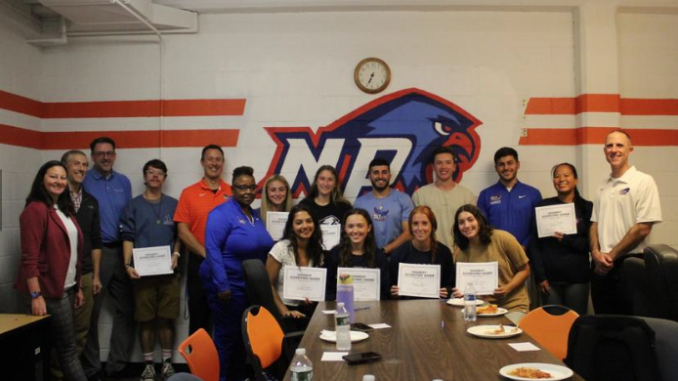
Striving towards success in academics is a difficult endeavor on its own. Student athletes are presented with a unique challenge, juggling both schoolwork and their sport, with commitments demanding much of their time and energy. Recently, SUNY New Paltz honored 18 of these athletes who maintained a 4.0 GPA in the Spring 2021 semester. The Oracle spoke to two athletes who were honored: Hannah Ackerman, a fourth-year psychology student on the field hockey team and Michael Boccarossa, a graduate student pursuing a master’s in elementary education on the baseball team.
Though they lead different lives, both Ackerman and Boccarossa make use of routines and schedules to coordinate and plan out their day. For Ackerman, a day of classes, practices and work is sprinkled with homework and essential needs in the brief free moments that she has. To sustain and follow this schedule, she emphasized forming good habits surrounding work ethic and maintaining a supportive circle of teammates who keep her accountable. Ackerman also found that writing things out is a great way to keep herself focused and on track.
Boccarossa shared similar strategies with The Oracle, as he primarily emphasized writing things out and building a support system to keep himself accountable. For graduate students, classes are only held once a week, but the workload is much greater to compensate for that time. One strategy he mentioned was writing out every assignment listed on his syllabi, ensuring that he could plan accordingly and not miss a single deadline.
Good habits and work ethics are lifelong skills that require practice and effort to build up. Though these skills can be developed at any stage in life, for Ackerman and Boccarossa, those skills were instilled early on in elementary and middle school. As they have developed both as students and as athletes, they have learned to foster those habits and maintain a good, sustainable work ethic as they transitioned into college.
That is not to say, however, that things are always easy. Ackerman told The Oracle that when faced with stress, she works through the situation one step at a time rather than backing down. She shared that, “the more I push myself, the easier it is to get through, which makes it easier for when things do get harder.” This does not mean that Ackerman necessarily overloads her schedule, but that working through challenges is a necessary part of nurturing a good work ethic. Along with that, having a strong support system is crucial to success. Ackerman credits her teammates, coaches and the Athletics Department for their patience and understanding.
The ability to deal with school pressure goes hand in hand with pressure in sports as well, Boccarossa highlighted, as student athletes utilize similar strategies in both situations to face challenges. Boccarossa’s established routine allows him to complete necessary work, while also providing the space to take a step back if needed. When it is time to get back to work though, he stressed the importance of going the extra mile, connecting with professors face-to-face and putting in the effort. It is a key step for student athletes — or any student — to take to achieve success. Prioritization, as Boccarossa emphasized, is key, and students looking to succeed “will find a way to get it done and be successful” efficiently and with utmost pride in their work and in themselves.
